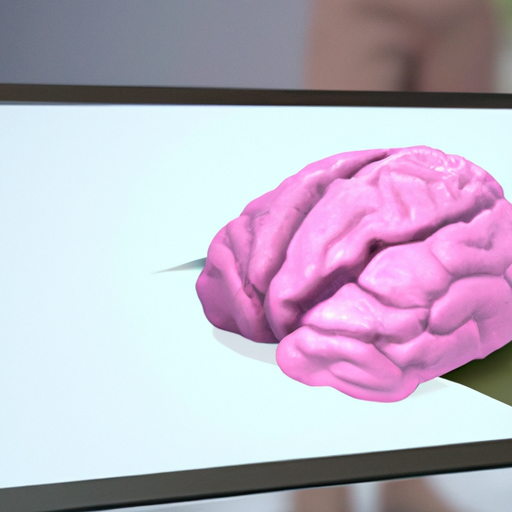-
Table of Contents
Attention Deficit Hyperactivity Disorder (ADHD) is a common mental health disorder that affects millions of children and adults worldwide. It is characterized by difficulty paying attention, hyperactivity, and impulsivity. While there is no cure for ADHD, there are a variety of treatments available to help manage symptoms and improve functioning. This article will discuss the different types of treatments available for ADHD, including medications, psychotherapy, lifestyle changes, and alternative treatments.
Exploring the Different Types of ADHD Treatment Options
Attention Deficit Hyperactivity Disorder (ADHD) is a neurological disorder that affects millions of children and adults worldwide. It is characterized by difficulty paying attention, impulsivity, and hyperactivity. While there is no cure for ADHD, there are a variety of treatments available to help manage the symptoms. This article will explore the different types of ADHD treatment options.
The first type of treatment is medication. Stimulant medications, such as Ritalin and Adderall, are the most commonly prescribed medications for ADHD. These medications work by increasing levels of dopamine and norepinephrine in the brain, which can help improve focus and reduce impulsivity. Non-stimulant medications, such as Strattera, are also available and can be used to treat ADHD symptoms.
The second type of treatment is psychotherapy. Cognitive Behavioral Therapy (CBT) is a type of psychotherapy that can help individuals with ADHD learn to manage their symptoms. CBT focuses on identifying and changing negative thought patterns and behaviors that can contribute to ADHD symptoms. Other types of psychotherapy, such as Dialectical Behavior Therapy (DBT) and Acceptance and Commitment Therapy (ACT), can also be used to help individuals with ADHD.
The third type of treatment is lifestyle changes. Making changes to diet, exercise, and sleep habits can help reduce ADHD symptoms. Eating a balanced diet, getting regular exercise, and getting enough sleep can help improve focus and reduce impulsivity. Additionally, reducing stress and avoiding distractions can also help improve focus and reduce impulsivity.
Finally, alternative treatments, such as dietary supplements, herbal remedies, and neurofeedback, can also be used to help manage ADHD symptoms. While these treatments are not as well-studied as medications and psychotherapy, they may be helpful for some individuals.
In conclusion, there are a variety of treatments available for ADHD. Medication, psychotherapy, lifestyle changes, and alternative treatments can all be used to help manage the symptoms of ADHD. It is important to speak with a doctor or mental health professional to determine the best treatment plan for you or your child.
The Pros and Cons of Medication for ADHD Treatment
Medication is a common treatment for Attention Deficit Hyperactivity Disorder (ADHD). While it can be effective in managing symptoms, it is important to understand the potential benefits and risks associated with this type of treatment.
The primary benefit of medication for ADHD treatment is that it can help to reduce symptoms such as impulsivity, hyperactivity, and inattention. This can lead to improved concentration, better academic performance, and improved social functioning. Medication can also help to reduce disruptive behaviors, such as outbursts and aggression.
However, there are also potential risks associated with medication for ADHD treatment. These include side effects such as decreased appetite, insomnia, and headaches. In some cases, medication can also lead to emotional and behavioral changes, such as irritability and mood swings. Additionally, there is a risk of addiction or dependence on the medication, which can lead to withdrawal symptoms if the medication is stopped abruptly.
It is important to discuss the potential risks and benefits of medication for ADHD treatment with a doctor or mental health professional before starting any treatment. This will help to ensure that the treatment is tailored to the individual’s needs and that any potential risks are minimized.
Understanding the Role of Behavioral Therapy in ADHD Treatment
Attention Deficit Hyperactivity Disorder (ADHD) is a common neurodevelopmental disorder that affects millions of children and adults worldwide. It is characterized by difficulty paying attention, hyperactivity, and impulsivity. While medication is often used to treat ADHD, behavioral therapy is also an important part of treatment.
Behavioral therapy is a type of psychotherapy that focuses on changing behaviors and teaching new skills. It is based on the idea that behaviors can be learned and modified through practice and reinforcement. Behavioral therapy for ADHD typically involves teaching children and adults how to better manage their symptoms and improve their functioning.
Behavioral therapy can help individuals with ADHD learn to better manage their symptoms and improve their functioning. It can help them develop better organizational skills, learn how to better manage their time, and learn how to better regulate their emotions. It can also help them learn how to better manage their impulsivity and hyperactivity.
Behavioral therapy can also help individuals with ADHD learn how to better interact with others. It can help them learn how to better communicate their needs and feelings, as well as how to better manage their relationships. It can also help them learn how to better manage their stress and anxiety.
Behavioral therapy can also help individuals with ADHD learn how to better manage their environment. It can help them learn how to better manage distractions, how to better manage their environment, and how to better manage their daily routines.
Behavioral therapy is an important part of ADHD treatment. It can help individuals with ADHD learn how to better manage their symptoms and improve their functioning. It can also help them learn how to better interact with others and manage their environment. By combining behavioral therapy with medication, individuals with ADHD can achieve better outcomes and improved quality of life.
Exploring the Benefits of Alternative Treatments for ADHD
Attention Deficit Hyperactivity Disorder (ADHD) is a neurological disorder that affects millions of children and adults worldwide. It is characterized by difficulty paying attention, impulsivity, and hyperactivity. Traditional treatments for ADHD include medications such as stimulants and non-stimulants, as well as psychotherapy. However, many individuals are now exploring the potential benefits of alternative treatments for ADHD.
Alternative treatments for ADHD include lifestyle changes, dietary modifications, and supplements. Lifestyle changes may include increasing physical activity, reducing stress, and improving sleep habits. Dietary modifications may include eliminating processed foods, avoiding food additives, and increasing intake of omega-3 fatty acids. Supplements such as zinc, magnesium, and iron may also be beneficial.
In addition to lifestyle and dietary changes, some individuals may find relief from alternative therapies such as yoga, meditation, and acupuncture. Yoga and meditation can help to reduce stress and improve focus. Acupuncture may help to reduce symptoms of ADHD by stimulating the body’s natural healing processes.
Finally, some individuals may find relief from herbal remedies such as ginkgo biloba, St. John’s wort, and ginseng. These herbs may help to improve focus and reduce hyperactivity. However, it is important to note that these remedies should be used with caution, as they may interact with medications or have other side effects.
Alternative treatments for ADHD can be beneficial for some individuals, but it is important to discuss any changes in treatment with a healthcare provider. It is also important to note that alternative treatments should not be used as a substitute for traditional treatments such as medications and psychotherapy. With the right combination of treatments, individuals with ADHD can lead healthy and productive lives.
How to Create an Effective Treatment Plan for ADHD
Creating an effective treatment plan for Attention Deficit Hyperactivity Disorder (ADHD) requires a comprehensive approach that takes into account the individual needs of the patient. The plan should be tailored to the patient’s age, symptoms, and lifestyle. It should also involve the patient’s family and other caregivers.
The first step in creating an effective treatment plan for ADHD is to assess the patient’s symptoms. This should include a physical exam, psychological evaluation, and a review of the patient’s medical history. The assessment should also include a discussion of the patient’s lifestyle, including their diet, sleep habits, and any other factors that may be contributing to their symptoms.
Once the assessment is complete, the next step is to develop a plan of action. This should include a combination of medication, behavioral therapy, and lifestyle changes. Medication can help to reduce the symptoms of ADHD, but it should be used in conjunction with other treatments. Behavioral therapy can help the patient learn to manage their symptoms and develop better coping skills. Lifestyle changes, such as getting regular exercise and eating a healthy diet, can also help to reduce symptoms.
It is important to involve the patient’s family and other caregivers in the treatment plan. They can provide support and help to ensure that the plan is followed. They can also help to identify any potential triggers that may be causing the symptoms to worsen.
Finally, it is important to monitor the patient’s progress and adjust the treatment plan as needed. Regular follow-up visits with the doctor can help to ensure that the plan is working and that any changes are made in a timely manner.
Creating an effective treatment plan for ADHD requires a comprehensive approach that takes into account the individual needs of the patient. It should involve the patient, their family, and other caregivers, and should include a combination of medication, behavioral therapy, and lifestyle changes. Regular monitoring and follow-up visits with the doctor can help to ensure that the plan is working and that any changes are made in a timely manner.
Q&A
1. What medications are used to treat ADHD?
The most commonly prescribed medications for ADHD are stimulants such as methylphenidate (Ritalin, Concerta, Daytrana) and amphetamines (Adderall, Vyvanse). Non-stimulant medications such as atomoxetine (Strattera) and guanfacine (Intuniv) are also used to treat ADHD.
2. What non-medication treatments are available for ADHD?
Non-medication treatments for ADHD include cognitive-behavioral therapy, parent training, social skills training, and educational interventions.
3. How long does it take for medication to work?
It typically takes 1-2 weeks for medication to start working.
4. Are there any side effects associated with ADHD medications?
Yes, there are potential side effects associated with ADHD medications. Common side effects include decreased appetite, difficulty sleeping, irritability, and headaches.
5. Is there a cure for ADHD?
No, there is no cure for ADHD. However, with proper treatment, symptoms can be managed and individuals can lead successful lives.ADHD is a complex disorder that requires a comprehensive treatment plan tailored to the individual. Treatment typically includes a combination of medication, psychotherapy, lifestyle changes, and educational interventions. With the right combination of treatments, individuals with ADHD can lead successful and fulfilling lives.

Hi there, I’m Chris Dedos. I’m an ADHD geek and the head writer of LDACA.org. I write all things ADHD to spread awareness and support for those wanting to know more about the condition. Thank you for reading!

